LOSS FOR WORDS
Read this and weep – embattled public libraries are being squeezed out of existence
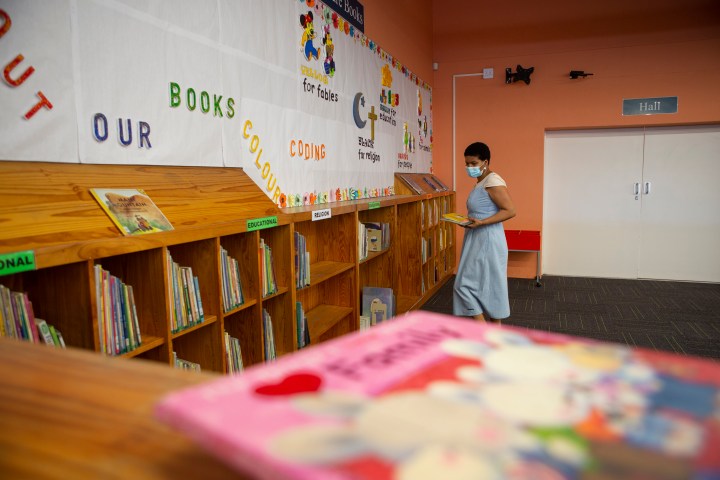
Public libraries are being called upon to ‘do more with less’ in the face of closures, tightened budgets and expanding mandates.
Over the past few years there have been fluctuations and decreases in budget allocations for public libraries in the Western Cape and Gauteng. Within Johannesburg and Cape Town, a number of libraries have faced temporary and permanent closures. Increasingly, these public facilities are called on to do more with less, while providing vital access to reading material and resources for communities and individuals who cannot find such support elsewhere.
Most libraries in South Africa are not grand places. When DM168 visited a few in Cape Town and Johannesburg, we found them to be nondescript, out-of-the-way structures, quietly operating in the background. The buildings showed varying degrees of neglect – from peeling paint to broken windows – even as the interiors reflected the efforts of library staff to add colour and life.
Despite their tendency to be overlooked, libraries remain valuable places for many to access books, do homework or research, catch up on current affairs and use computers and WiFi.
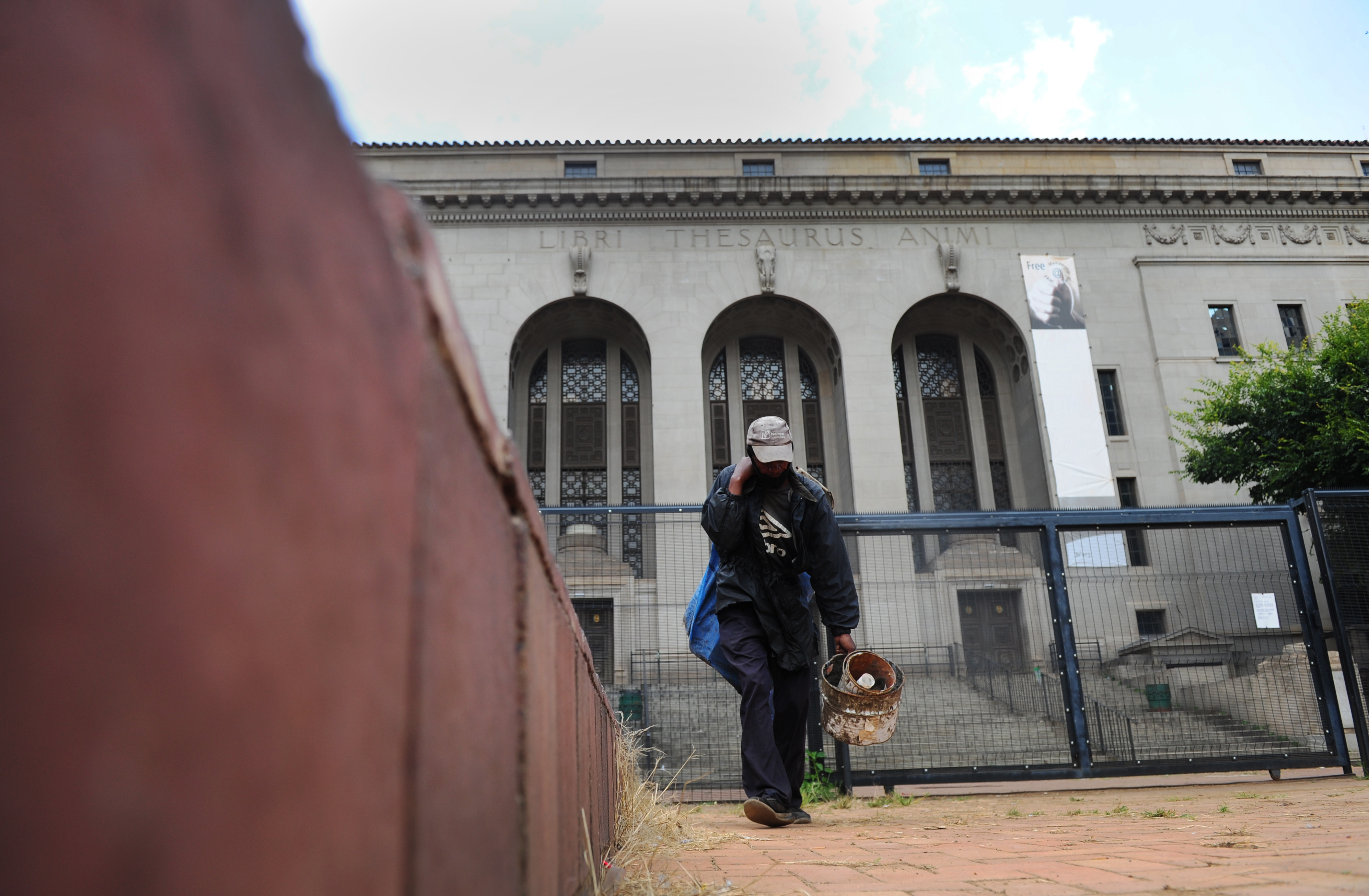
A homeless man moves his belongings away from the front yard of the Johannesburg City Library. The library is closed for maintenance. (Photo: Leon Sadiki)
In lower-income communities, libraries are often the only places where people have access to such things, according to Nazeem Hardy, president of the Library and Information Association of South Africa. “I think we should never discount the role that the library plays in providing people access to reading material in a country where the literacy rates are appalling, where books are expensive,” said Hardy.
South Africa faces a reading crisis, with the most recent nationally representative and publicly available survey of reading outcomes – the Progress in International Reading Literacy Study 2016 – showing that 78% of Grade 4 children cannot read for meaning in any language. A Department of Higher Education and Training report from March 2021 shows that the adult illiteracy rate in South Africa was 12% in 2019.
“The library is still the equaliser in a sense, and the enabler for people having access to a wide collection of materials,” explained Hardy.
Despite this, South African public libraries continue to face operational challenges in the form of tightened budgets, growing expenses and an ever-expanding mandate. Daily Maverick examined how these factors are affecting the state of libraries in Cape Town and Johannesburg.
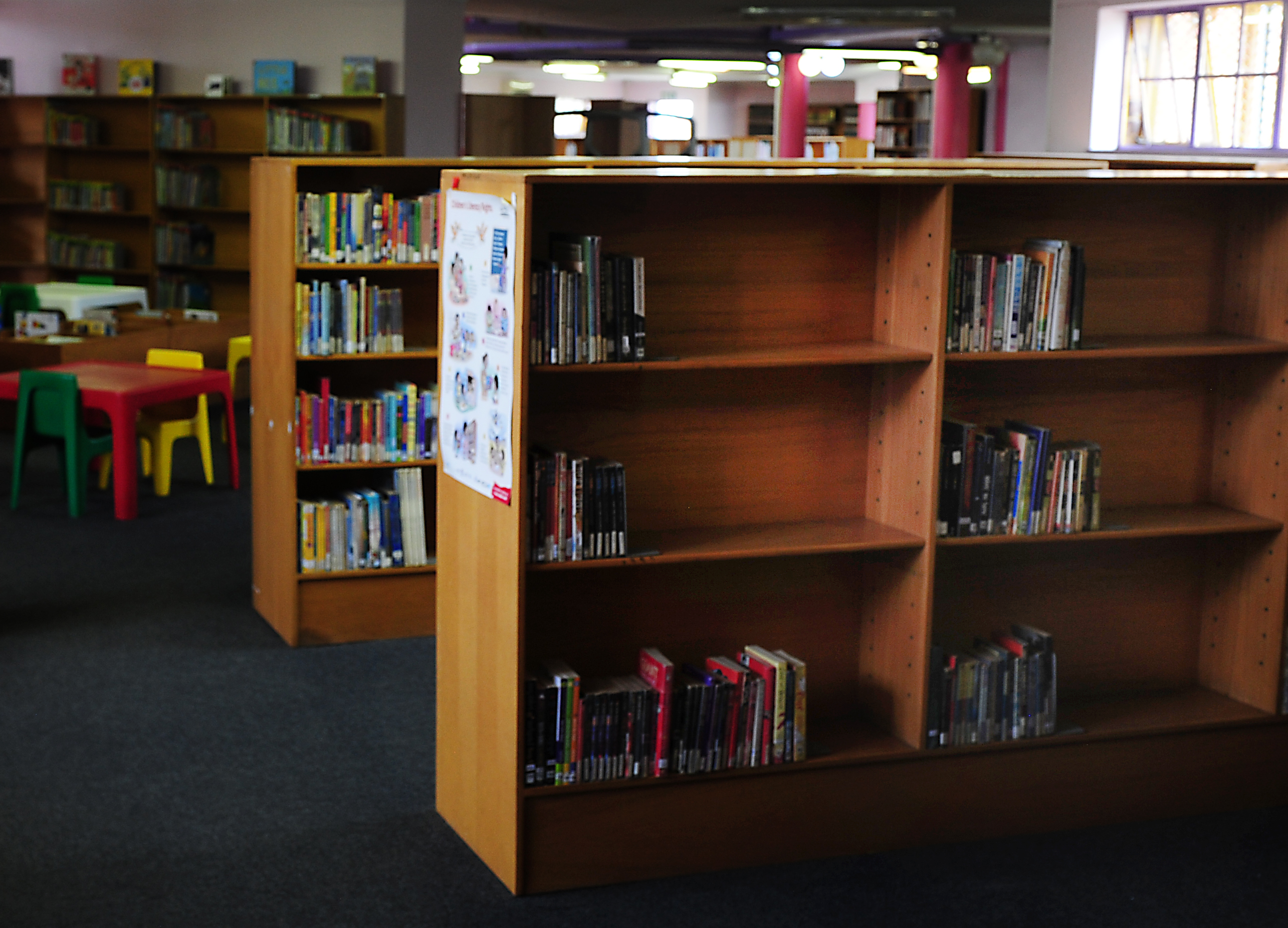
Despite the cracks in the wall and the empty bookshelves, the Diepkloof Library in Soweto is open and functional. (Photo: Leon Sadiki)
Closures
The Library and Information Services Department of the City of Cape Town consists of 102 libraries and one satellite library. All libraries are currently open, although due to staff shortages some have adjusted their opening hours, according to councillor Patricia van der Ross, the mayoral committee member for community service and health.
There are 89 libraries in Johannesburg, of which seven are currently closed for major upgrades or due to occupational health and safety requirements, according to Nthatisi Modingoane, deputy director of the City of Johannesburg’s group communications.
Two libraries have permanently closed in Johannesburg in the past four years: Modderfontein Library and Norwood Library. The former closed down after the City could not reach an “economically feasible agreement” to rent space for a library in the new Modderfontein shopping centre, said Modingoane. The latter is being replaced by a bigger facility, the Paterson Park Library.
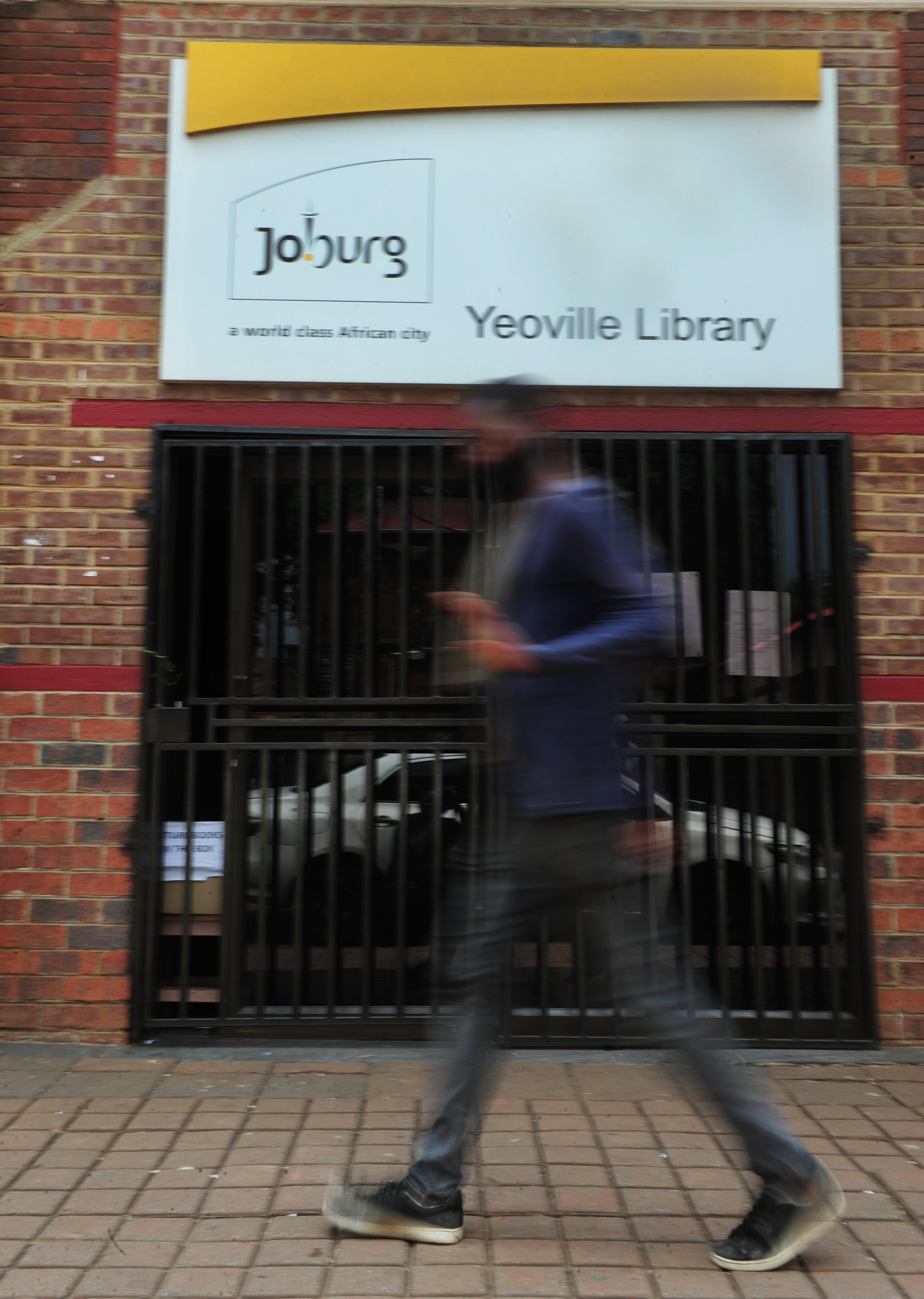
The Yeoville Library was closed on 23 February 2022. Residents say it has been closed for more than a month owing to water cuts. (Photo: Leon Sadiki)
Regarding the driving forces behind library closures, Modingoane said: “The contributing factors that would influence decision-making in this regard will be budget and distance. Libraries in a radius of 3km to 4km within communities that can use alternative public libraries can be targeted. Transport modes of the community […] will again influence the decision.”
The City of Cape Town announced that it would be phasing out its mobile library, consisting of three buses that provided services at 28 stops, in January 2021. The mobile library had about 3,000 members. Since then, a further two libraries have been earmarked for closure. Tygervalley Library will close on 30 April 2022 and Plumstead Library on 30 April 2023. Both facilities are in rented spaces with external leases.
“The decision was taken by [the Cape Town] council on 15 December 2021 to align with the city’s decision to delimit external leases, resulting from the impact of Covid-19 on the economy and the subsequent revenue decline,” said Van der Ross, who recommended that patrons of these libraries use alternative facilities in nearby areas. But Toni Leferink, a patron of Plumstead Library, does not consider this to be viable.
“[M]any around here do not have the means to travel by car to get what they need at neighbouring libraries,” said Leferink. The lack of direct public transport between Plumstead and libraries in Meadowridge or Southfield means that those patrons without their own transport may have to walk 30 to 40 minutes to reach these facilities.
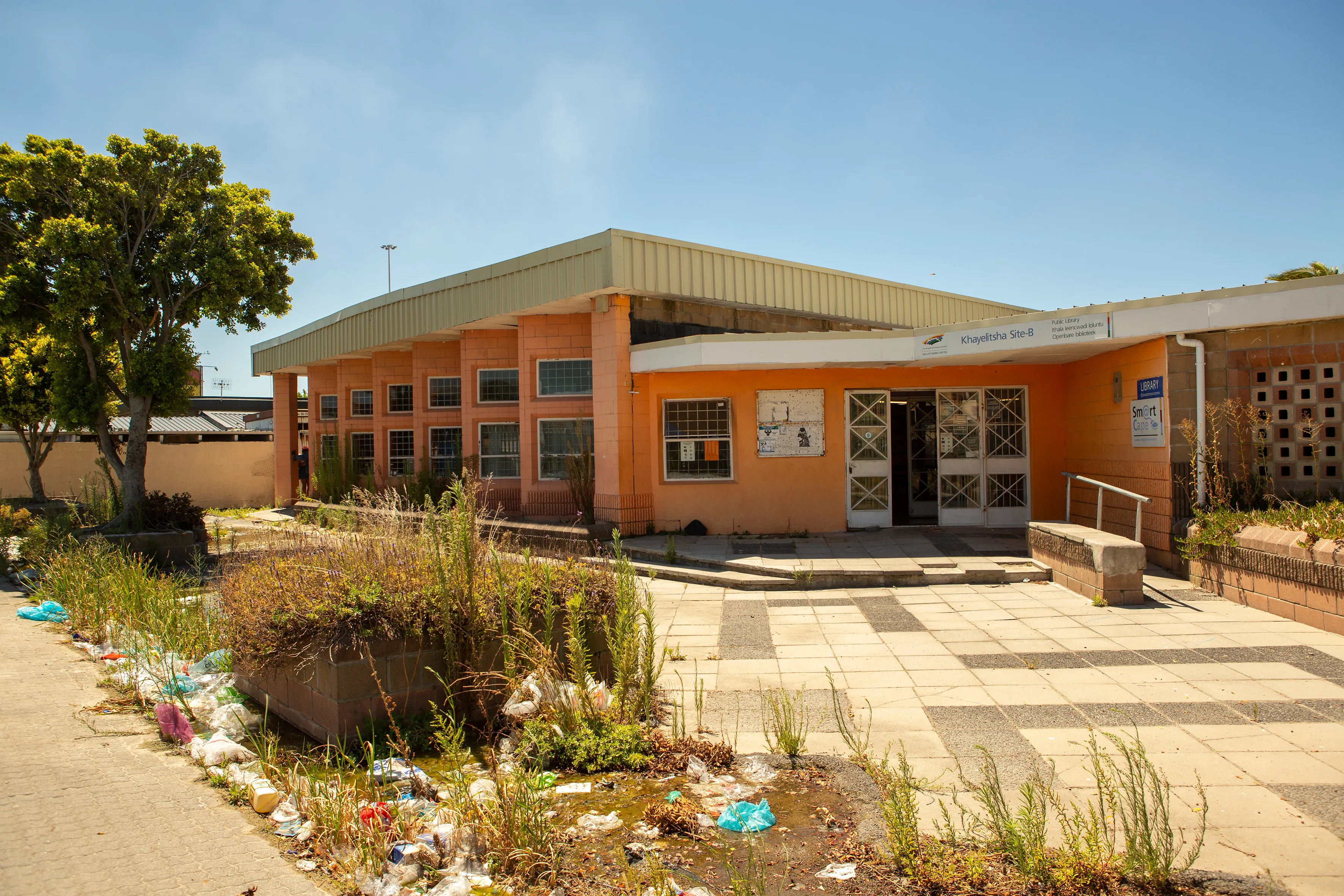
The Khayelitsha Site-B Library. (Picture: Shelley Christians)
Those most affected by the closure of the library will be seniors, unemployed people and the lower- and middle-income residents in Plumstead, said Leferink.
“The library is more than just getting free books. It is a gateway to social contact, access to the internet and access to free entertainment,” said Leferink. “[T]he employees at the library are very helpful with assisting with setting up a CV, helping apply for jobs and bursaries [and] online banking, etc. You can print and copy. Not all have these resources available at home.”
Hardy says these closures are a matter of concern, particularly in the City of Cape Town, which has historically been one of the better municipalities in terms of providing library services.
“I think one’s concern is around, if this is what can happen in what is considered to be one of the best [areas], what does that mean in places where there’s not a lot happening, or […] where municipalities do not want to come to the party?” said Hardy. Allowing libraries to close with little outcry, as was the case with Cape Town’s mobile library, could have a “snowball effect” and set a precedent for more libraries to close down, he added.
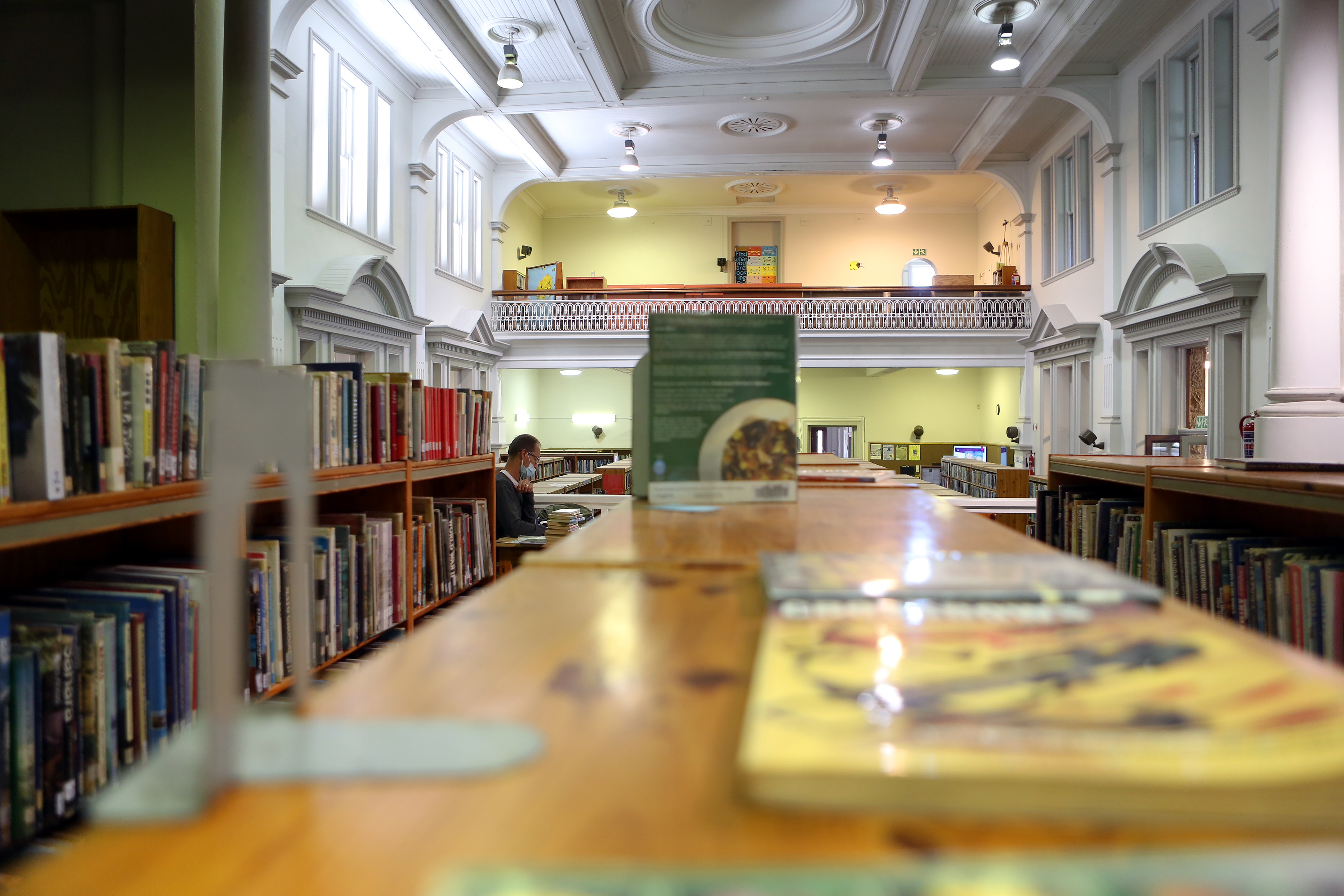
The Rondebosch Public Library in Cape Town, where many people choose to work. (Picture: Shelley Christians)
Budgets
The funding of the public library sector is a multilayered responsibility, involving role players at the national, provincial and municipal level. The situation, dependent as it is on various tiers of decision-makers, is a complex and potentially messy one.
Funding for public libraries is mainly dependent on the Conditional Grant for Public and Community Libraries from the national Department of Sport, Arts and Culture, according to Tania Colyn, head of communications for the Western Cape Department of Cultural Affairs and Sport. The “precarious nature” of the grant poses a challenge for the future certainty and sustainability of public libraries.
“The service is also dependent on the municipalities who provide partial funding for the continuation of this service to varying degrees, even though it is not their mandate,” explained Colyn.
Modingoane confirmed that libraries are a provincial mandate. He said the budget is never enough, in light of increasing needs and expectations within communities, as well as the need to close gaps and ensure all community members are catered for.
In Gauteng, the budget allocation for public libraries in the 2019/20 financial year was R317,855,000, according to Nomazwe Ntlokwana, spokesperson for the Gauteng Department of Sport, Arts, Culture and Recreation. In the 2020/21 financial year, the total budget allocation decreased to R288,715,000.
The budget for libraries in Johannesburg, meanwhile, went from R260,180,000 in 2019 to R293,407,000 currently, according to Modingoane.
The Western Cape budget allocation for libraries also dropped between the 2019/20 and 2020/21 financial years, from R250,407,000 to R232,901,000, according to Colyn. However, it then increased to R266,574,000 in 2021/22.
The variations in the Western Cape budget seem to be largely the result of fluctuations in the Conditional Grant from the national government, which went from R176,763,000 in 2019/20 to R144,334,000 in 2020/21, before increasing to R178,866,000 in 2021/22. The remaining budget each year was made up by municipal replacement funding from the provincial government.
An examination of budget statements from the City of Cape Town shows a steady decline in capital expenditure on public libraries over the past four years.
According to the 2018/19 to 2020/21 capital adjustments budget, issued in January 2019, the proposed budget for library and information services for 2018/19 was R45,498,968. In the 2021/22 to 2023/24 capital adjustments budget, issued in January 2022, the proposed budget for library and information services for 2021/22 was R19,922,128. This is a drop in funding of R25,576,840.
Items found on these budgets for library and information services include books and materials; furniture; media material; security upgrades; and IT equipment.
“Reduced resources have already resulted in a decrease in some services, such as reduced operating hours and fewer programmes, while some community libraries operate as satellites,” said Van der Ross on the budget allocation for libraries over the past few years.
“The decline in funding has also meant less money for books, maintenance and expansion. It’s a difficult decision, but we need to free up funding so we can maintain services at other facilities.”
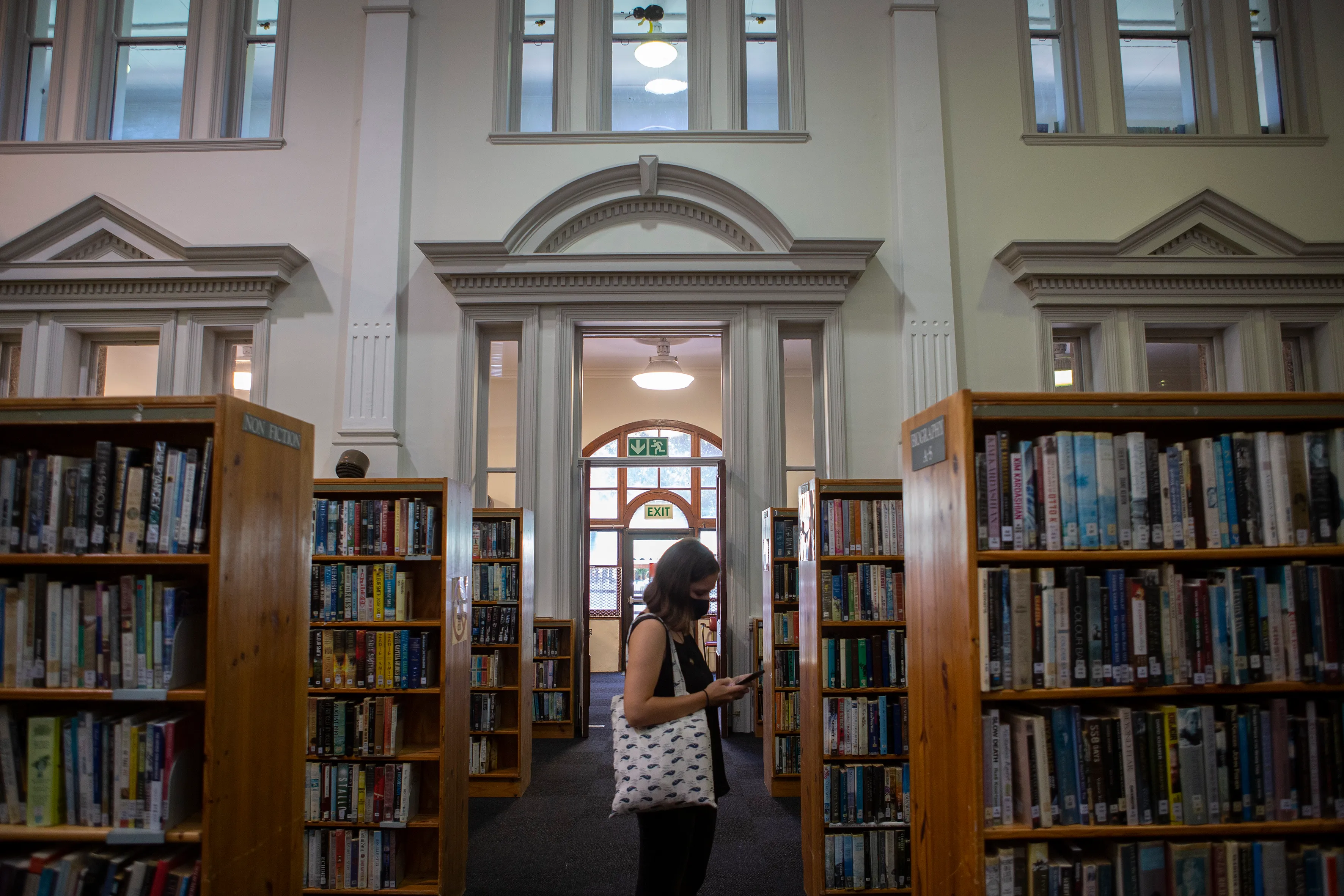
Rondebosch Public Library in Cape Town. South African public libraries continue to face operational challenges in the form of tightened budgets, growing expenses and an ever-expanding mandate. (Picture: Shelley Christians)
Expanding mandate
In light of the decreases and fluctuations in budgets, libraries are increasingly called on to do more with less, said Hardy. He referenced the poor school library infrastructure in South Africa, and the way in which public libraries take on the role of the school library in providing access to materials and support.
“I think this is a sign of what libraries have to do all the time: we’re having to step in, having to do the things that others are just not either equipped to do, or [aren’t] there to do,” said Hardy. “And so libraries take on these roles, and I think very often it is about a fight for relevance. So, we take on more and more, but the money isn’t increasing.”
DM168 witnessed the commitment of local libraries on a visit to Delft South library in Cape Town on 22 February. The library is largely populated by adults in the morning, using it for personal studies. Children arrive in the afternoon to complete their homework, according to Nosimpiwe Nsoko, the Delft South children’s librarian.
The library keeps a separate shelf with books related to whatever the children are working on at school that week. “So, they come in and then we do reference interviews with them. We ask, ‘How can we help you?’ And then we understand the grade, and what they need,” said Nsoko.
Among their usual services, the library staff also invite crèches for storytelling and game-playing, help primary school pupils prepare for exams, and run reading programmes for local children. DM168
This story first appeared in our weekly Daily Maverick 168 newspaper which is available for R25 at Pick n Pay, Exclusive Books and airport bookstores. For your nearest stockist, please click here.
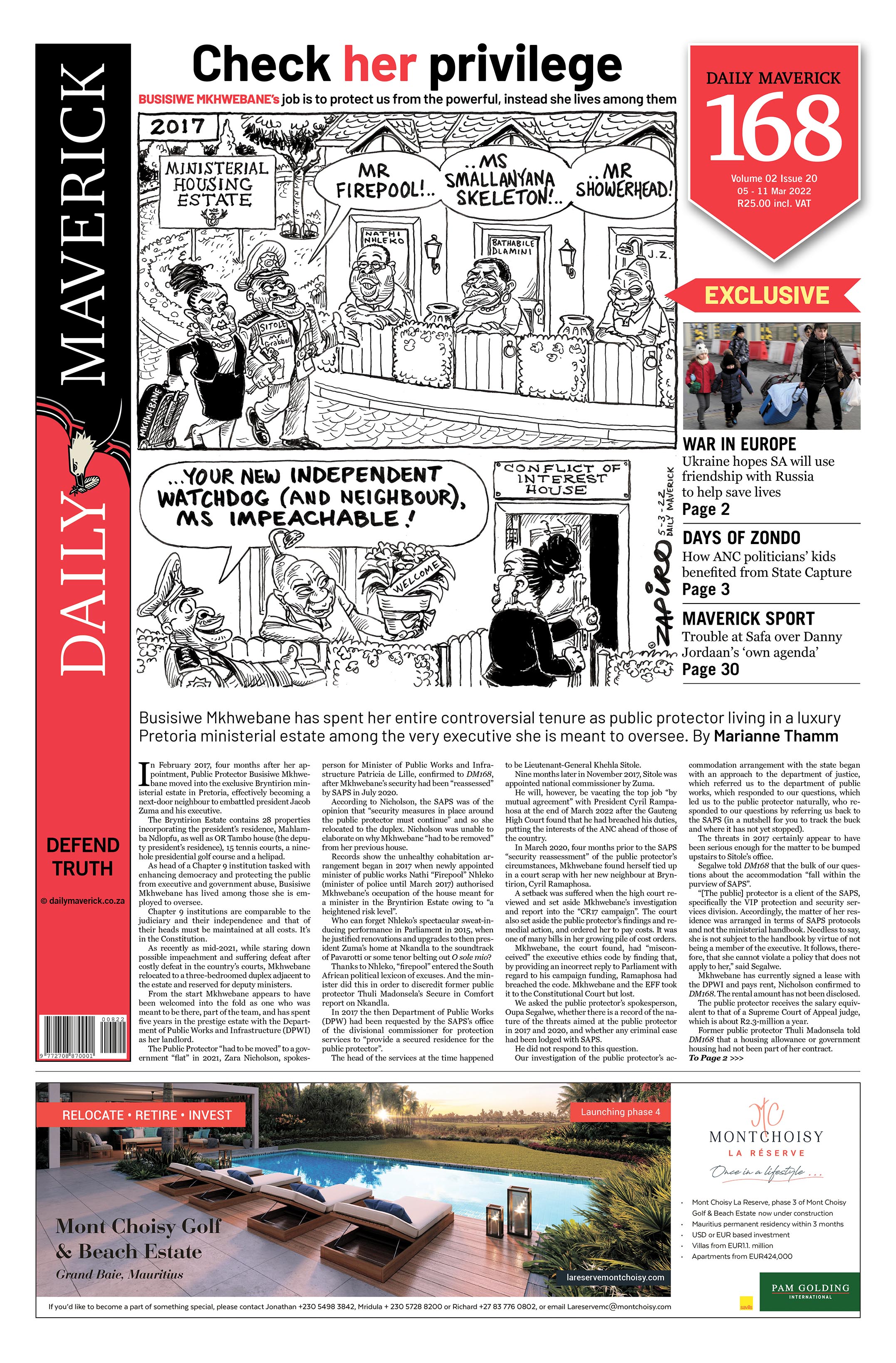




















 Become an Insider
Become an Insider
Nearly six decades since I first began taking myself to the municipal library, it’s still one of my fav places to go. Even with electronic devices and access to e-books, there’s little that compares to a carefully selected basket of new titles to light up a Friday afternoon. Some of my earliest memories are of our local library where the librarian flicked through the cards with long, manicured nails. The movement of her exotically beringed fingers fascinated me. I still love the thump, thump of the inked stamp. Then it was Tin-Tin with the masterfully imaginative cusser Captain Haddock, he of ‘Blistering barnacles!’ and ‘Shvering ectoplasm!’. Now its Colin Thubron’s travelogues that take me to wildly exotic places. Life without a local library would be much the poorer.